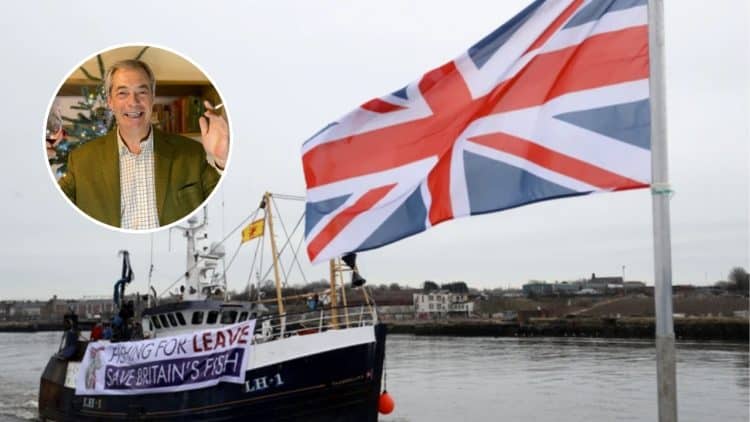The Kirkella, Britain’s last remaining distant-water whitefish trawler, is currently docked in Hull, unable to operate. The vessel, which usually supplies British fish and chip shops with cod and haddock, is stuck because there is no fishing quota left for it to catch. This situation highlights a post-Brexit issue that has left the fishing industry facing unexpected challenges.
Brexit Promises and the Fishing Industry
During the UK’s debate over leaving the European Union, the fishing industry was frequently cited as a key reason for Brexit. Prominent Brexit supporters, such as Michael Gove, whose father ran a fishing business, argued that leaving the EU would allow Britain to regain control of its waters and quotas, giving the industry a much-needed boost.
Nigel Farage, another vocal supporter of Brexit, even led a flotilla of fishing boats up the River Thames in an anti-EU demonstration days before the referendum. More than 90% of UK fishermen were reported to have voted Leave, hoping for a brighter future with control over British waters.
The Reality of Post-Brexit Fishing Quotas
Unfortunately, the promises made to the fishing industry have not materialised. The Kirkella, which used to be one of three vessels that brought in around 20,000 tonnes of whitefish annually, has seen its catch limit drastically reduced. This year, the vessel has been restricted to just 6,500 tonnes of fish, leaving a significant shortfall.
The lack of available fish is now being compensated by imports from countries such as Norway, Greenland, Iceland, and even Russia. These imports are filling the gap left by the Kirkella’s inability to meet the demand of British fish and chip shops.
The Role of Trade Agreements in the Fishing Shortfall
Before 2019, the UK’s access to Norwegian waters was negotiated as part of a broader EU trade deal. The EU, through the much-criticised Common Fisheries Policy (CFP), secured important fishing concessions for Britain. However, since Brexit, the UK government has struggled to negotiate similarly favourable deals.
According to Jane Sandell, CEO of UK Fisheries, successive fisheries ministers have failed to deliver the same results in post-Brexit fisheries negotiations. Sandell notes that the UK’s post-Brexit fishing negotiations have not been as successful as the deals previously secured by the EU on Britain’s behalf. In her words, “Brussels negotiators did a far better job for Britain than we have since done for ourselves.”
A Missed Opportunity for the Fishing Industry
The Kirkella’s current situation is emblematic of broader post-Brexit challenges facing the UK’s fishing industry. The sector, which once saw Brexit as a means to regain control and thrive, is now facing reduced quotas and increasing reliance on imports. Despite the high hopes of fishermen and the promises made by Brexit advocates, the industry appears to have been left struggling in a post-Brexit reality.
As Britain’s last distant-water trawler remains stuck in Hull, unable to fish due to quota restrictions, the fishing industry is left questioning what Brexit has truly delivered. Once held up as an example of what could be gained from leaving the EU, the sector is now dealing with the complexities and shortfalls of post-Brexit trade agreements.
You may also like: Will the real Barack Obama please stand up? He just did!







